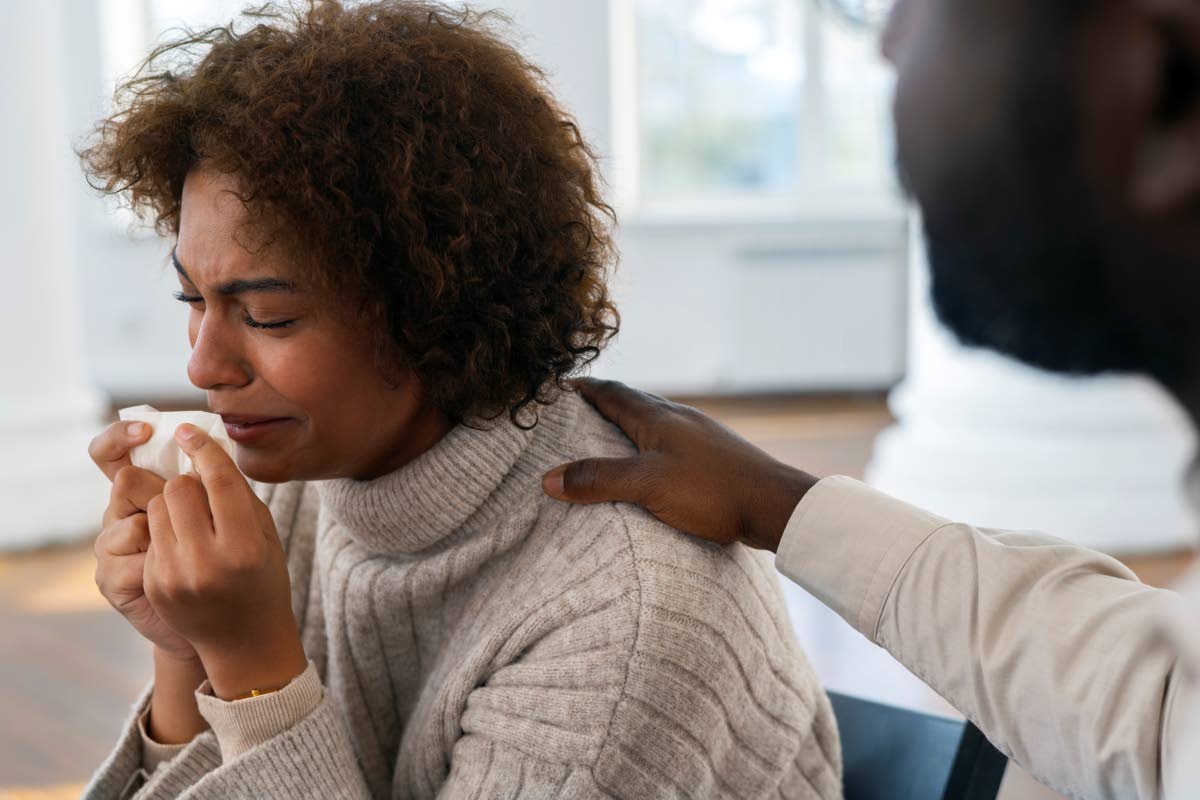Yesterday
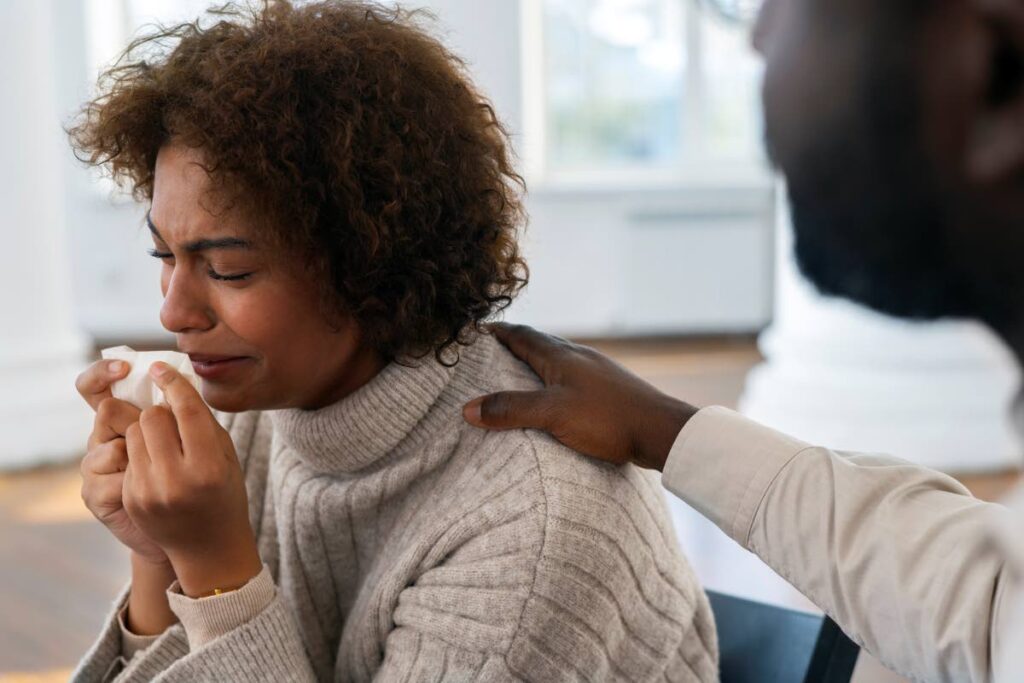 According to the World Health Organization, anxiety disorders impact more than 300 million people globally, making them the most common mental health condition in the world. –
According to the World Health Organization, anxiety disorders impact more than 300 million people globally, making them the most common mental health condition in the world. –
BAVINA SOOKDEO
According to the World Health Organization, anxiety disorders impact more than 300 million people globally, making them the most common mental health condition in the world. As awareness grows around this often misunderstood challenge, TT-born therapist, counsellor and life coach Sadiya Khan offers a unique voice in the conversation – one that blends psychological insight with deep spiritual awareness.
Now based in Toronto, 43-year-old Khan left Trinidad at age 18 to pursue a double major in psychology and sociology at the University of Toronto. She later lived in Jordan for 12 years, raised seven children and spent 15 years working in counselling and coaching before she formally studied psychotherapy and counselling in 2023.
Khan formally launched her own holistic practice, Mindful Healing Path, in 2024. She opened her own practice after seeing a unique need for holistic psychospiritual counselling. “I always wanted to offer spirituality-infused psychotherapy as it deepens the process of healing and allows clients to connect with a sense of peace and contentment,” she said.
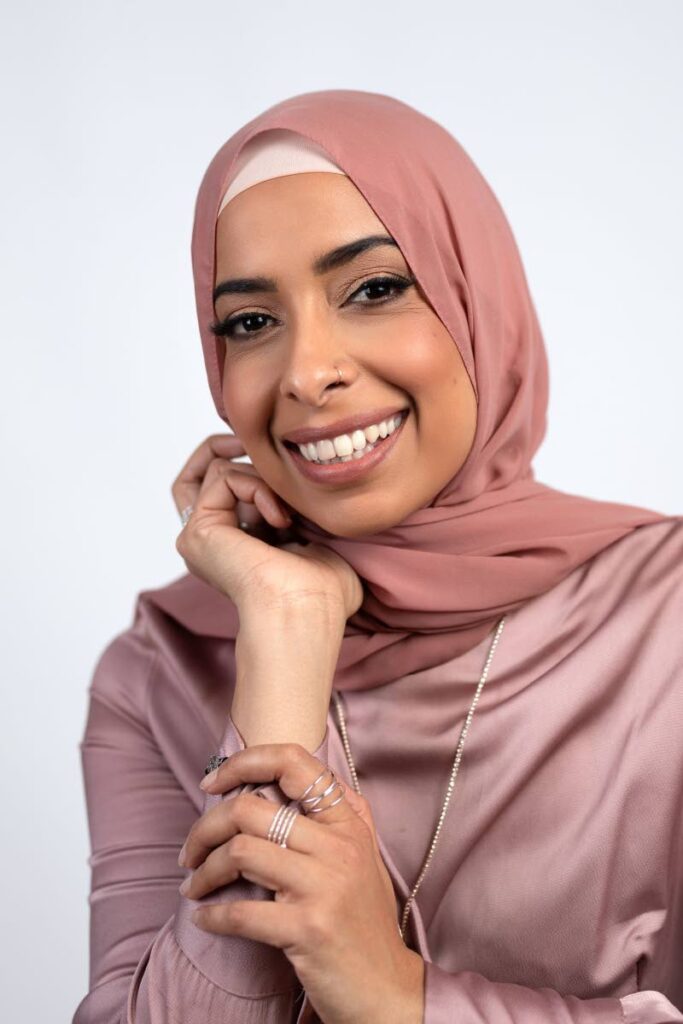 Sadiya Khan says social media and sensational news cycles deepen trauma. –
Sadiya Khan says social media and sensational news cycles deepen trauma. –
That holistic philosophy is central to the workshops she offers, with titles like The Lost Art of Listening, Self Care as Worship, Mindfulness as a Lost Sunnah, Staying Calm, Parenting with Presence and Psychotherapeutic Dimensions to the Prayer. While her audiences are diverse, Khan notes that an increasing number of Caribbean nationals are trickling into these spaces becoming more open to therapy and mental health conversations.
“One Trinidadian grandmother in her 70s said she always thought mindfulness was a Western American concept and never saw the need for it,” she said. “Another told me she now sees how her relationship with food is connected to her mental health.”
This openness is timely. Anxiety, Khan explained, “is a natural physiological and psychological response in the body to perceived threats or uncertainty. It’s the body’s natural defensive mechanism of preparing you to deal with potential danger – often called the “fight, flight, freeze response.” She pointed out that when this response becomes chronic or disproportionate to the situation, it can become overwhelming and lead to dysfunctionality in relationships, underproductivity in the workplace and feelings of fear and scarcity. Khan added that “when this anxiety is paired with poverty, ongoing stressors, lack of social support, lack of education and insufficient infrastructure for mental health well-being, it can lead to even further dysfunctional behaviours including abuse, violence and crime.”
Questioned on what causes anxiety, the therapist explained that it can be as a result of a combination of biological, social, psychological and environmental factors often linked back to early childhood experiences (like trauma or inconsistent caregiving), unprocessed trauma, genetic predisposition and chronic stress. “I’ve also seen a consistent correlation between negative thought patterns such as perfectionism, people-pleasing or fear of failure.
“Lifestyle habits, major life transitions and cultural or societal pressures can also further intensify anxiety, especially when a person lacks a strong internal sense of safety and support.”
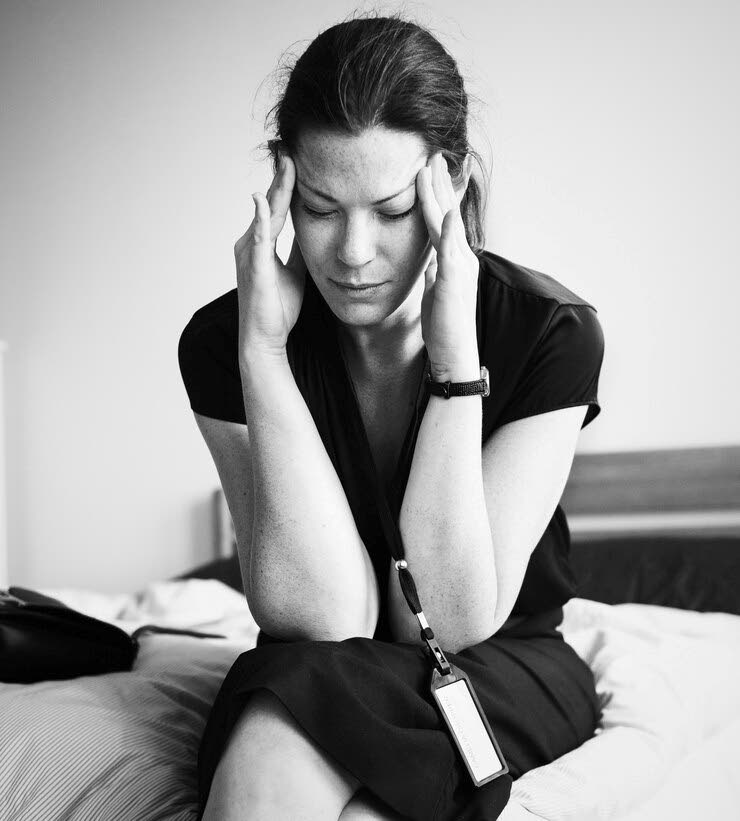 Women are nearly twice as likely as men to be diagnosed with anxiety disorders. –
Women are nearly twice as likely as men to be diagnosed with anxiety disorders. –
Khan pointed out that women are also nearly twice as likely as men to be diagnosed with anxiety disorders with the prevalence rate among women being 4,862 per 100,000, compared to 2,933 per 100,000 in men. “Studies done on Caribbean participants revealed a similar result across women and men” she said. “I believe the gender gap may be due in fact to the realities of patriarchy reflected in income, job opportunities, social equality, crime against women and lack of support for women especially for single mothers.”
She pointed to what she deems “the global pandemic of online and social media addiction” which has also increased isolation across generations. “People are increasingly connected but never more disconnected” she stressed. “Families at restaurants are on their phones instead of speaking and teens are lacking the social skills to interact and engage in meaningful ways with peers. Today teens report anxiety spikes just at the thought of engaging in face-to-face communication, or even a voice call.”
She further noted that cyber bullying and social media consumption have also increased the pressures of appearing a particular way, comparing oneself to impossible standards and feelings of pervasive discontentment and restlessness. “Scrolling, binge watching television, meaningless sex, overindulgence in food, alcohol and drugs have also served as numbing tools to alleviate anxiety so that people do not have to feel the emotions that are painful and uncomfortable.”
Social media and sensational news cycles, she said, only deepen this trauma. “I had a 15-year-old client who followed crime news obsessively. After 1.5 years, her anxiety was debilitating, her grades dropped, and she began self-harming.”
Her observations extend back to Trinidad. Khan notes that on visits here, she notices heightened anxiety in both children and adults – often linked to the country’s crime problem. “I notice it with my children compared to the children born and raised there. Children and adults born and living in Trinidad generally exude significantly more fear, paranoia and worry about movement and regard most new interactions with distrust and fear, due to the crime.
“People seem to be in constant fight or flight mode…over-checking if doors are locked, bags are secured and whether you are being followed makes people feel constantly anxious and nervous.”
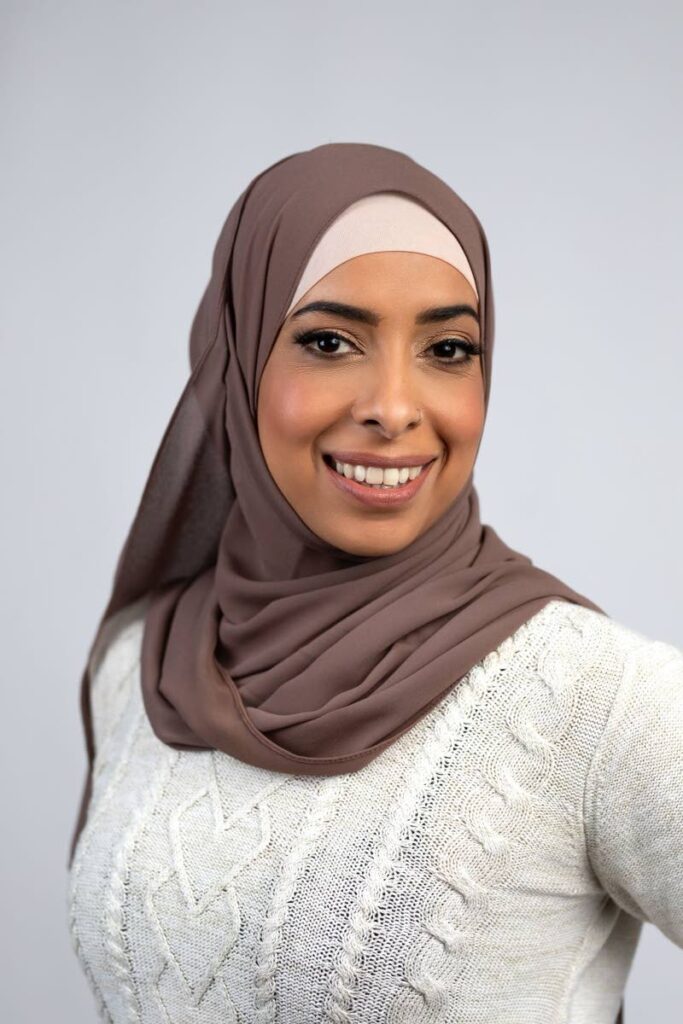 TT-born therapist, counsellor and life coach Sadiya Khan. –
TT-born therapist, counsellor and life coach Sadiya Khan. –
The therapist explained that chronic fear and anxiety especially when rooted in vicarious trauma, such as witnessing or hearing about violent crime can also manifest in physical illness. “Over time, this constant activation of the stress response (and the stress hormones and cortisol in the body) can lead to physical illnesses like chronic pain, heart disease, digestive issues, and autoimmune disorders including diabetes and arthritis.” She referred to research showing that people exposed to ongoing fear (even indirectly) are more likely to experience immune dysregulation and inflammation-related diseases. “In fact, up to 41 per cent of individuals under chronic anxiety report physical symptoms such as persistent pain or fatigue, showing how trauma can embed itself in the body, not just the mind,” said Khan.
For people living in high-stress environments like Trinidad, Khan recommends grounding techniques like box breathing (four-four-four-four) – a breathing technique that involves inhaling, holding the breath, exhaling and holding the exhale for equal durations, usually four seconds each; deep breathing (with longer slow exhales) progressive muscle relaxation, and sensory awareness which help calm the body’s immediate fear responses. She also added that routines that prioritise physical safety and reduce exposure to triggering media can help establish a sense of control. Khan also recommends body-based self-care, including movement (exercise, yoga etc), adequate sleep and rest (which support emotional and physical resilience) and spiritual or faith-based practices which offer emotional anchoring.
The counsellor further noted that in a high anxiety, high uncertainty environment, community is essential and so too is building safe, supportive relationships which helps counteract isolation, fear and distrust caused by systemic violence. “It also provides a sense of hope amidst a pervasive feeling of helplessness.”
Most importantly, Khan urges Trinis to reject the shame around seeking help. “Understanding that anxiety in this context is not a personal weakness but a valid and normal response to chronic external threats can empower individuals to seek counselling and trauma informed education for healing without shame.” She explained that accessing local mental health services and training can teach individuals how to regulate their nervous system, set boundaries, manage triggers, limit digital exposure (while still being aware of dangers), and be guided to create their own resources and support systems for protecting their mental well-being, and teaching their families how to do so as well.
The therapist’s own mental well-being is guided by structured self-care. “In Ontario, it’s mandated that therapists maintain psychological fitness. I schedule downtime, delegate tasks, eat well, exercise, sleep and have my own therapist,” she said. “That’s how I stay present for my children and my clients.”
To those silently struggling, Khan sent out this message: “You are not alone. Anxiety affects over 300 million people in the world. You do not have to navigate this on your own. Dr Gabor Mate, a leading world expert on mental health and trauma refers to stress as the silent killer because it undermines both physical and mental health over time. So take care of your mental health before it shows up as a physical illness in your body, because you deserve your greatest attention and love.”
Khan is also preparing to release a children’s picture book in July, What Would He See, inspired by TT’s leatherback turtles. It’s about a baby turtle that ventures out of his hole in the sand to find the sea, but along the way gets caught in some garbage and is almost eaten by a wild dog. “The story shows that when the little turtle is able to quiet the external noise and distraction, he is able to close his eyes and focus on the sound of the ocean which enables him to find his way.” The book also comes with a parental guide that teaches how to nurture that intuition in a child to develop a sense of self trust and self-love in a world of distractions and numbing tendencies (television, scrolling, shopping, sex, drugs, alcohol).
As more Trinidadians – especially younger generations – embrace conversations around mental health, Khan is hopeful. “There’s been real progress, especially in cities,” she said. “But rural communities and older populations still face stigma.”
What’s needed, she believes, is systemic change: mental health support embedded in schools, mandatory training for frontline workers, and a culture that sees therapy not as taboo but as a path to wholeness. Khan stressed that anxiety doesn’t mean someone is broken. It simply means you are human – and healing is always possible.
